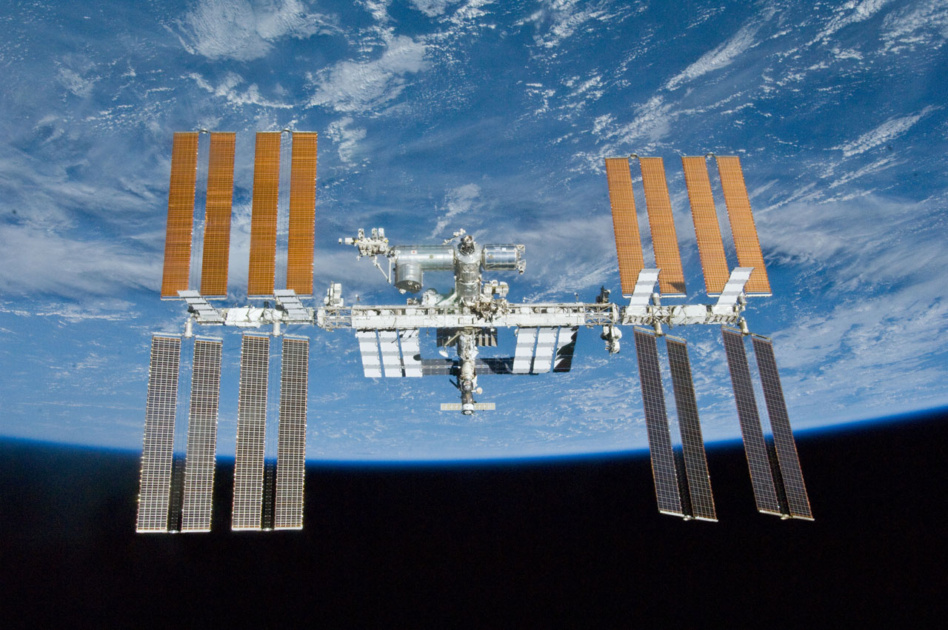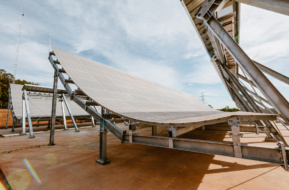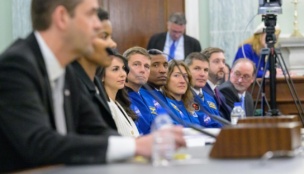The in-space collaboration between the US and Russia may be coming to an end. Yesterday, newly installed Roscosmos chief Yuri Borisov announced Moscow’s intention to walk away from the ISS partnership in 2024 and commence construction on its own space station.
In recent memory…
- Russia’s hostile invasion of Ukraine almost immediately sent the already-strained ISS partnership between the US and Russia into turmoil.
- On Feb. 24, President Biden responded to the invasion with sweeping sanctions on Russia.
- In response, then-head of Roscosmos Dmitry Rogozin tweeted a variety of thinly veiled threats, including one about the ISS falling back to Earth and landing on the US or Europe.
Though Rogozin’s comments were widely interpreted as bluster, at least rhetorically, tensions began to reach the ISS.
- In early March, Russia issued a statement that implied the US couldn’t count on their partnership to extend beyond the current agreement, which ends in 2024.
- In April, Rogozin again threatened to pull out of the ISS partnership until the West lifted sanctions.
- Retired NASA astronauts began to publicly come out against continuing on with the partnership.
- In the 153 days since Russia invaded Ukraine, operations aboard the orbital outpost have continued as usual.
But then…things started to look up on the collaboration front.
In mid-April, Rogozin reaffirmed the space agency’s commitment to seat swap plans for upcoming trips to the ISS. NASA and Roscosmos put those plans in writing less than two weeks ago, putting four seat swap flights on the docket. Rogozin was also canned right around then.
The partnership nears its end
Borisov’s announcement casts doubt on hopes of orbital detente. Though it’s unlikely that Russia has the funding, parts, or manufacturing capacity to get a brand-new space station on orbit in two years, it appears likely that it will indeed leave the ISS behind soon.
Robyn Gatens, ISS director at NASA Headquarters, said yesterday that NASA had not been alerted to any changes in the ISS partnership despite Russian media reporting to the contrary.
What happens to the ISS? The Russian segment of the ISS provides the thrusters that keep the station in the proper orbit. Though Russia hasn’t provided any details about what exactly they’d take with them when they go, it’s possible that the US would no longer be able to use those thrusters.
- SpaceX’s Crew Dragon capsules and Northrop Grumman’s Cygnus spacecraft are reportedly capable of docking with the ISS and providing thrust as a stopgap solution.
Looking forward: LEO could look very different in the coming years. China is currently two-thirds of the way through the buildout of its Tiangong space station. On the off chance that the ISS is deorbited and decommissioned, Tiangong could be up there alone for a while. And the West’s 20-plus years of sustained crewed presence in space would be cut off.
Still, NASA’s plans currently rely on keeping the ISS up and running through 2030 to avoid a gap in access to LEO. After that, a handful of commercial space stations are headed to orbit through NASA’s Commercial LEO Destinations (CLD) program. NASA seems confident as of now that all this can still go according to plan.




